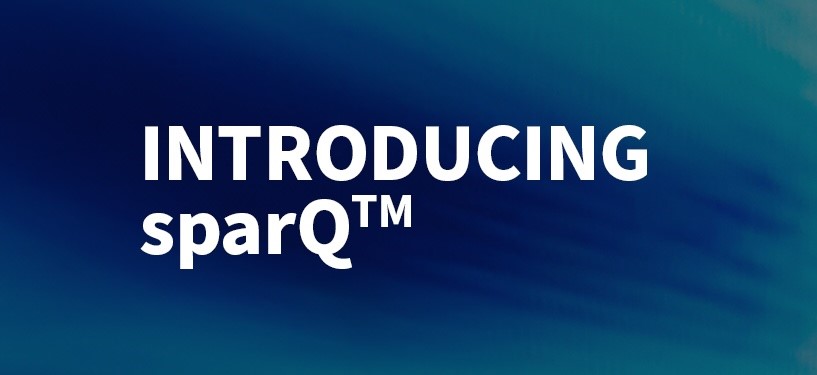One thing I know for sure is that I would not be where I am today if I wasn’t on the autism spectrum.
I have long reflected on the idea that our weaknesses are our strengths – and vice versa. When I was diagnosed, I realized that it was my condition that enabled me to thrive as a software engineer and to grow my career in the tech industry. I have been fortunate to have found a path that works for me and for my employer. Unfortunately, many people on the spectrum struggle to find their place in the professional world and I believe that to be a loss, both to those individuals and to our communities and the workforce at-large. As someone who studies organizational structure and culture and who lives through the Asperger/autism lens, I want to share some of my observations from the inside.
If you have met one person on the autism spectrum, you have met one person on the autism spectrum. That said, there are certain tendencies that many with this particular profile bring to our personal and professional lives. Many of the attributes that are considered hallmarks of an autism profile (specifically, an Asperger profile, which is categorized by a lack of intellectual disability) are highly sought-after in the tech sector. Individuals with Asperger’s demonstrate a tremendous attention to detail, a sense of dedication, a strong work ethic, meticulous execution of problems, and an ability to understand complex systems.
Although the Asperger label has only recently entered the scene, people have lived with this particular neurological make-up for millennia. There is a reason these traits have not been selected out through evolution. The qualities so frequently seen in individuals on the spectrum have proven advantageous to communities for as long as people have been on the planet. Today, products and services that benefit the public continue to depend on a workforce that can provide those beneficial attributes.
Despite possessing attributes that render them ideal candidates for positions in the tech world, many people on the spectrum struggle to find and keep jobs that would allow them to utilize their skills. The differences in thinking and perceiving, which can positively influence creativity and productivity, can be a liability in terms of fitting into an established work culture. People on the spectrum experience the world in a different way than the average person. Unfortunately, this difference is often misunderstood, partly due to inaccurate media representation. I think and sense differently than a neurotypical person. It can be difficult for me to intuitively perceive the nuances of a group dynamic.
Conversely, it can be challenging for a neurotypical person to intuitively perceive my unconventional thoughts and sensory experiences. It is as if we are speaking different languages without a translator. Unfortunately, when one side does not understand the thoughts of the other, it can lead to unfounded suspicions and judgement. Because those on the spectrum are in the minority, they tend to be more frequently misunderstood, especially when there is no structure to create an inclusive culture.
Often, people on the spectrum are perceived as difficult when asked to work in collaborative environments, when really we are all seeing a particular problem from a different angle. We might also have unique communication styles compared to the others. This can be a major hurdle for those on the spectrum when there is growing expectation for employees of companies to work in teams. This is especially true when there is no training in place to bridge the different approaches.
Many companies are missing out on the benefits of workers on the spectrum due to significant challenges in the realm of training. Most companies are setup to hire round pegs to fit into round holes. While individuals on the spectrum can provide tremendous benefits to their employers, they are often not round pegs. With the right organizational training, employers can provide environments that are the appropriate fit in such a way that everyone benefits.
We are now seeing the largest employers investing in this type of training because they cannot dispute the edge they will gain from being more inclusive. They are realizing that it is a competitive advantage if they can figure out how they can utilize a less typical pool of talent. They are putting in the work to really understand variations in human behavior. They are able to invest in specialized HR departments, capable of understanding and supporting neurodiverse employees.
I see that more and more people with Asperger profiles are finding employment within these forward-thinking work environments. I also see that many folks on the spectrum are alternatively branching out to do freelance or to work in startups that allow for much more flexibility in terms of work and communication style. The problem is that there is a huge gap between the largest employers and the the smallest; the mid-sized companies are missing out on the benefits of working with neurodiverse people.
In my opinion, there are particular building blocks for an organizational culture that will help a neurodiverse individual thrive in the workplace.
Strong Leadership
Strong leaders understand neurodiversity and the complexities of organizational behavior. They know that everyone has something to offer and that their responsibility is to find the unique strengths of every individual. A good mentor can identify and magnify your strengths. They can help you mitigate your weaknesses, either by showing you how to mute them, by putting you in a context that does not adversely affect the individual or the organization, or to find coping strategies that will allow you to be successful. Equipped with this knowledge, your unconventional talent will then be very competitive in the marketplace. I was once told, “First find the right mentor, then the technology, then the money.”
A Culture that Welcomes Dissent
A strong organizational culture rewards behaviors that are good for the employee and the company. Sometimes what is best for the company is to be open to a critical voice. People on the spectrum tend to think in systems, so they can often identify ways in which the environment can be improved or systems to be streamlined. A culture where a certain level of dissent is accepted and even welcomed will benefit from unconventional solutions to problems.
Opportunities to Make an Impact
People are motivated by very different things. I would much rather be rewarded with an opportunity for growth than a chance to go out and get drinks with the team. I am personally incentivized by what I can provide. I am not looking for public recognition or celebration, rather I am seeking the opportunity to make a real impact on the business and the team. This opportunity itself is the reward and the way by which I feel accepted.
Clear Communication
Managers who employ people with Asperger’s benefit from knowing how critical clear communication is. If you are looking to leverage a team-member who is capable of deep focus, take the time to communicate exactly what you want.
I believe that all employers could see a huge payoff by hiring neurodiverse workers. However, this payoff depends on taking the time and investing resources in creating the right environment. Creating this environment requires taking the time to really understand human behavior from multiple perspectives. I see the Master’s Degree in Social Work as the the new MBA. A clear understanding of human differences makes a huge impact on business. Without an open conversation about what these differences are, we are all losing out.
Conrad Hollomon is a software test engineer who is also on the Autism spectrum. He is a member of the Aspergers/Autism Network (AANE), an organization that works with individuals, families, and professionals to help people with Asperger Syndrome and similar autism spectrum profiles build meaningful, connected lives. Learn more at www.aane.org.
Further recommended reading on this topic:
- Tech Giants Tap Into Autism Community for Fresh Talent (TechTonics, May 26, 2017)
- This Visionary May Completely Disrupt The Tech Industry As We Know It (Forbes, Jan 19, 2016)
- How high-tech jobs could solve the autism unemployment crisis (The Verge, June 6, 2013)
- “Coding Autism” Launches to Train Adults with Autism How to Code (Cision, April 11, 2017)
- Working with Autism in Application Security (WhiteHat Security blog, April 28, 2017)
- Why shades of Asperger’s Syndrome are the secret to building a great tech company (The Washington Post, April 3, 2015)



